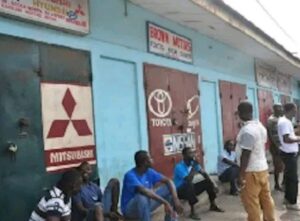Ghana Union of Traders Association has embarked on three days of protests over the spiraling inflation affecting the country’s currency.
Read Also: Ghanaians can now enter UAE without visa


The President of the Ghana Union of Traders Association, Joseph Obeng disclosed that traders will suspend commercial activities in the capital, Accra, from Wednesday to show their “frustration” over the weakening currency, surging inflation, and high lending rates.
Obeng, who represents traders of goods such as electrical parts, clothes, food, and other goods, said, “we want to give the government the message that, whatever solution they are trying to bring to bear, they should do so with a sense of urgency.”
Ghanaian authorities are currently in talks with the International Monetary Fund for funding support of as much as $3 billion after the country was priced out of global debt markets this year. The government seeks to reach an agreement with the multilateral lender within weeks to help fund its economic program.
An exit of foreign investors prompted by concerns over the sustainability of the country’s debt has contributed to a 47% depreciation of the cedi against the dollar this year, making it the world’s worst-performing currency. That in turn has accelerated inflation, which rose for 15 consecutive months until the statistics office changed the way it measured price moves. Annual inflation stood at 37.2% in September.
The central bank has increased its benchmark lending rate by 10 percentage points this year to 24.5% in a bid to tame price growth, bolster the currency and lure back investors. That’s led to increased borrowing costs for traders.
Read Also: Nigeria’s Newspaper Headlines: Ghanaians resume hostility against Nigerian traders

The protest will affect the masses who will not be able to access the markets to purchase foodstuff for their families and this will in turn bring about hardship for the people. Major losses will be recorded by traders across various sections of the markets where these protests will be held.

